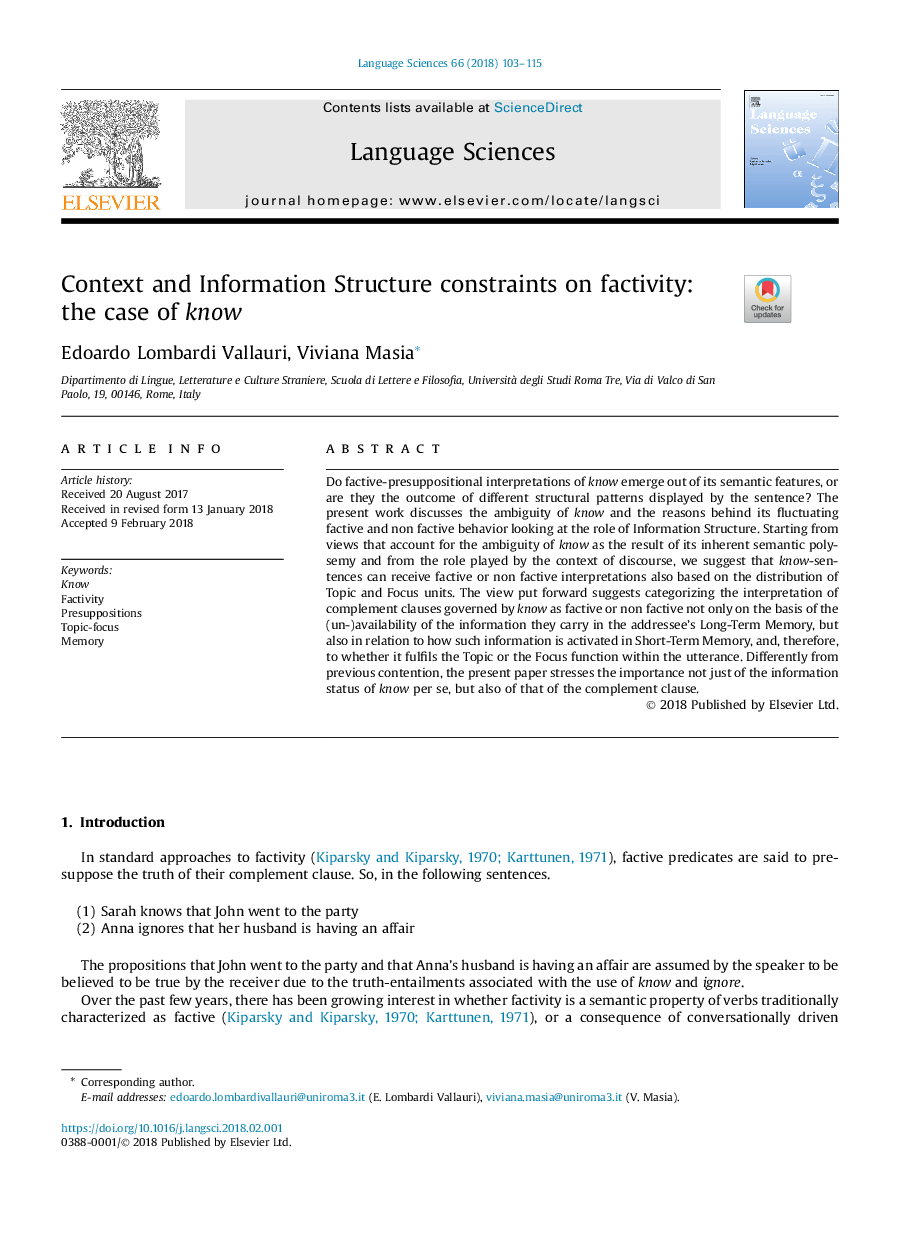ترجمه فارسی عنوان مقاله
محدودیت های ساختار اطلاعاتی و محتوایی بر جنبه: مورد دانستن
عنوان انگلیسی
Context and Information Structure constraints on factivity: the case of know
| کد مقاله | سال انتشار | تعداد صفحات مقاله انگلیسی |
|---|---|---|
| 98050 | 2018 | 13 صفحه PDF |
منبع

Publisher : Elsevier - Science Direct (الزویر - ساینس دایرکت)
Journal : Language Sciences, Volume 66, March 2018, Pages 103-115
ترجمه کلمات کلیدی
بدانید، خصوصیات، پیش فرض ها، موضوع تمرکز، حافظه،
کلمات کلیدی انگلیسی
Know; Factivity; Presuppositions; Topic-focus; Memory;
ترجمه چکیده
آیا تفسیرهای فقهی-پیش فرض از دانش از ویژگی های معنایی آن ظاهر می شوند، یا نتایج حاصل از الگوهای ساختاری مختلف نمایش داده شده توسط جمله است؟ در این مقاله، ابهام دانش و دلایل رفتار نوسانگرانه و غلط آن با توجه به نقش ساختار اطلاعات مورد بحث قرار می گیرد. از دیدگاههایی که به دلیل ابهام شناخت به عنوان نتیجه چند وجهی معنایی ذاتی و از نقش آن در زمینه گفتمان مطرح می شود، پیشنهاد می کنیم که مفاهیم معرفت می توانند تفسیرهای فکری یا غلط بر اساس توزیع موضوع و واحد تمرکز دیدگاه ارائه شده، طبقه بندی تفسیر مقررات مکمل را که توسط شناخته شده به عنوان فاکتوری یا غیرقابل تصور شناخته می شود، طبقه بندی نمی کند، نه تنها بر اساس اطلاعات موجود در حافظه طولانی مدت مخاطب، بلکه همچنین در رابطه با چگونگی چنین اطلاعاتی در حافظه کوتاه مدت فعال می شود، و بنابراین، این که آیا موضوع یا عملکرد تمرکز را در بیان بیان می کند یا خیر. در مقالۀ حاضر، در مقاله حاضر، اهمیت نه تنها از وضعیت اطلاعاتی که به ذهنتان می رسد، بلکه همچنین از جمله مکمل نیز اهمیت دارد.

